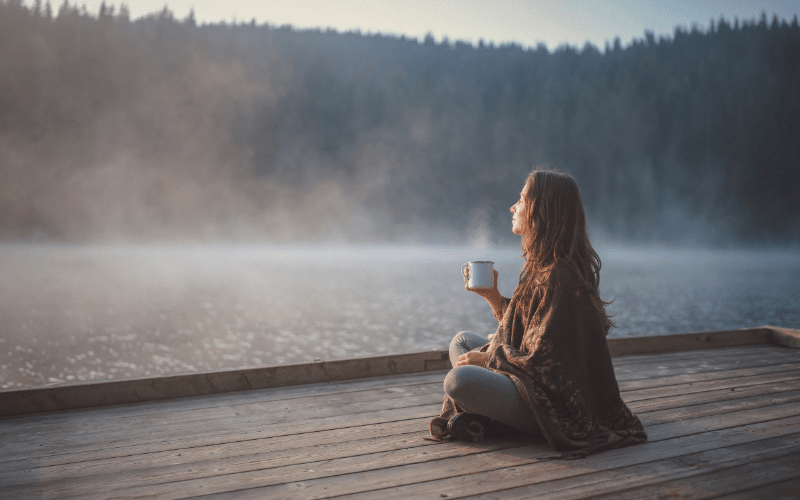Rest, Relax, Restore

The impact of providing care takes a toll on the mind, body, and spiritual wellness of the caregiver. The Hope Grows Care Model is about helping the caregiver to find ways to take time for self, which is the main reason the #ThinkCaregiver™ program and the Simple ‘Self-Care’ Suggestions, which are popular among those reaching out for support. We have heard from many caregivers that receiving a call instead of making a call is helpful. Caregivers tells us that even if I don’t answer, hearing the message is a reminder that someone is checking on me, it’s helpful and it reminds me to take time for self.
The theme this year is Rest, Relax and Restore; a well-fitting theme based on the opening of the Iris Respite House for overnight stays. We continue to encourage caregivers to take short breaks with our monthly focus that helps with regaining balance and change of perspective. The month of January was about creativity. We started the month talking about art therapy and the effective ways for caregivers to express their feelings and emotions, which can help reduce stress and increase feelings of relaxation. Creativity is a natural byproduct of the art-making process, and the act of creating can be very therapeutic in and of itself. Additionally, the focus and concentration required for art-making can be a helpful distraction from daily stressors, allowing caregivers to fully engage in the present moment.
Julia Cameron said, “creative expression is the voice of the soul.” During the month of January, I was glad to see snow outside my window. I had a hard time paying attention to my work, my eyes kept gazing to the beauty outside. I thought about all of the things I want to be creative with and I ponder about what is causing the lack of motivation to get started with something. I came to the realization that perhaps it has something to do with the thought that I need to have the best of everything in place to be successful. The best paints, materials and setting, to name a few. As always, my thoughts went to nature, the snow and how it was creatively hanging from the branches of the trees and bushes. It didn’t need the best branch of the tree, it fell where ever it wanted and painted a beautiful scene.
That is what I love most about nature, the therapeutic effects. There is no cost, the best comes from what our senses find, and then we create from the inspiration. A Danish creative professional’s study found that engaging with nature has a way of making us more curious, helps with flexibility in our thinking and it helps to recharge our directed thinking process. Curiosity, flexibility and focused thinking are the best of what can help us with creativity, also providing caregivers with an outlet for self-expression and self-discovery.
Elizabeth Gilbert, author of Big Magic and Eat, Pray, Love, tells us that “Creativity itself doesn’t care at all about results – the only thing it craves is the process. Learn to love the process and let whatever happens next happen…” I believe if you engage in the process of different activities, you will reap ways to boost creativity and alleviate stress and burnout. Some ways to be creativity include:
• Take a break and engage in a creative hobby, such as painting, drawing, photography, or writing. These activities allow you to tap into your imagination and take your mind off of work or other stressors.
• Get some exercise. Physical activity has been shown to improve mood and reduce stress. Plus, being outdoors and surrounded by nature can provide inspiration for creativity.
• Practice mindfulness and meditation. These techniques can help you focus on the present moment and reduce rumination about the past or worrying about the future.
• Try brainstorming and idea generation techniques. One example is the “brainwriting” method, which involves writing down ideas on a piece of paper or computer, rather than verbally discussing them with a group. This can be useful when dealing with mental fatigue.
• Experiment with new surroundings or change in environment. Sometimes a change of scenery can spark new ideas and perspectives.
• Connect with people, try to surround yourself with supportive, positive and inspiring people. Inspiration can be contagious and you can get new perspective and idea from them.
• Play games! Playing games, whether it’s table-top games, video games, or mobile games, can be a fun way to relax and unwind. Plus, playing games can help improve problem-solving skills and creativity.
It’s important to remember that everyone is different, what works for one person may not work for another, so it’s a good idea to experiment with different methods and find what works best for you. Have fun and above all, enjoy the process. And try a little of bit of nature, too.
